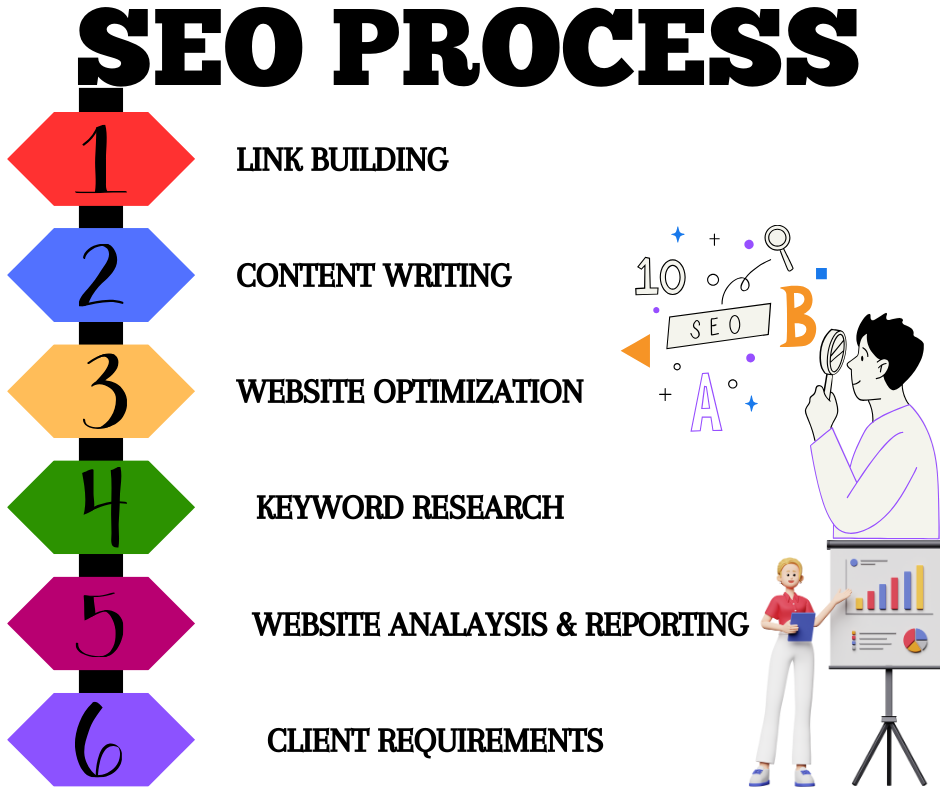Establishing an online presence has become a crucial aspect of the survival of any business in today’s digital era. Whether you are a large-scale industry, a well-established enterprise, or a small clothing store, having an online presence is a must to reach out to a wider audience and increase your customer base.
However, creating an online presence from scratch can be challenging for those new to the digital world. Here are we to help you out to create an online presence, if you are just starting. The most effective seven steps to create an online presence, if you are just starting are as follows:
Page Contents:
1. Building A Website
If you’re planning to launch a startup and want to make a mark in the digital world, building a website is an essential step. Your website acts as the face of your brand and plays a crucial role in shaping your customers’ perception of your business.
To build a website, you need to start by selecting the right content management system (CMS) or website builder that meets your requirements. There are various options available in the market, each with its unique set of features, pros, and cons. Evaluate your needs, technical knowledge, and budget to make a decision.
Once you’ve chosen the CMS or website builder, the next step is to select an affordable and relevant hosting plan. A reliable hosting provider ensures optimal speed, uptime, and security for your website. Consider factors like website traffic, storage space, security features, and customer support while selecting a hosting plan.

The domain name is an essential aspect of your website’s identity, and choosing an appropriate name is crucial for building a recognizable brand. Pick a name that reflects your brand identity, is easy to remember, and stands out from the competition.
In conclusion, building a website is a crucial step for any startup that wants to establish an online presence. By selecting the right CMS, hosting plan, and domain name, you can create a website that represents your brand and connects with your target audience.
2. Search Engine Optimization (SEO)
As a website owner, you are probably aware of the importance of visibility in search engines. Achieving this visibility requires a good Search Engine Optimization (SEO) strategy.
As a beginner, it’s crucial to follow all SEO standard guidelines to ensure that your website is optimized for search engines. One of the essential guidelines is to create content that contains relevant keywords, which helps search engines identify what your content is about and rank it accordingly.

Furthermore, optimizing images on your website can also contribute to improving your website’s loading speed, which is a crucial ranking factor.
Another aspect of SEO to consider is technical optimization, which involves optimizing your website’s structure, URL, and meta-tags. Focusing on technical optimization can help search engines understand your website better and improve its ranking.
By adhering to these guidelines, you can maintain your website’s ranking and visibility in the long run, which will ultimately lead to more traffic and better conversions.
3. Social media
Social media is a powerful tool that can help you achieve a strong online presence. In today’s digital age, with more than 4 billion active social media users around the world, having a presence on social media platforms is no longer an option but necessary.
To create a compelling social media presence for your startup, you need to start by crafting an engaging profile that represents your brand and appeals to your target audience.
This means taking the time to understand your audience’s interests, needs, and preferences, and tailoring your content to meet them. It’s also essential to stay up-to-date on current trends and developments in your industry, so you can create content that is relevant and valuable.

Building authentic relationships with your followers is another critical aspect of a successful social media strategy. This involves engaging with your audience regularly, responding to their comments and messages, and showing genuine interest in their opinions and feedback.
By doing so, you can create a loyal following that is more likely to share your content, recommend your brand to others, and become loyal customers.
4. Email marketing
When it comes to digital marketing, email marketing is a highly effective technique that can significantly increase your online presence. A survey has shown that email marketing generates 40% more results compared to social media marketing.
To leverage the benefits of email marketing, you can use social media to grow your email list by requesting customers to provide their email addresses in exchange for valuable content.

Once you have collected the email addresses, you can use your content management system to send targeted email marketing campaigns to your subscribers.
By providing exclusive access to valuable content in exchange for signups, you can not only grow your email list but also build a loyal customer base that is interested in your business and offerings.
5. Quality Content
The key to achieving a long and strong online presence is creating valuable and high-quality content that resonates with your target audience. To start, survey to identify the top trending topics in your industry. This will help you determine the subjects that are most relevant to your audience.
Additionally, look for topics that have not been covered by anyone else. This will allow you to create unique and informative content that sets you apart from the competition.
Once you have identified the topics that your audience is interested in, create a content plan that addresses their needs and interests. Your plan should outline the types of content you will create, the frequency of publication, and the platforms you will use to distribute your content.

To further increase the reach of your content, collaborate with influencers in your industry. Influencers can help you promote your content to a wider audience, increasing your visibility and credibility.
Remember, creating valuable and relevant content is an ongoing process. Keep track of your analytics to see what works and what doesn’t, and adjust your content strategy accordingly. By doing so, you will build a strong online presence that attracts and engages a loyal audience.
6. Influencer Marketing
With the increasing popularity of social media platforms, influencer marketing has emerged as one of the most effective ways to achieve this goal. The concept is simple yet powerful – by collaborating with influential individuals within your industry, you can reach out to a wider audience and create a strong online presence.
Influencer marketing is not just about finding someone with a large following. You need to identify the right influencers who have a genuine audience and whose values can complement your brand.
These influencers have built a loyal following because people trust their reviews and recommendations. By collaborating with them, you can leverage their credibility and tap into their engaged audience to promote your products or services.

One of the key advantages of influencer marketing is that it can be cost-effective. Working with new influencers who have a follower base of 1000 to 10,000, for instance, can be a relatively inexpensive way to reach a highly targeted audience.
These micro-influencers may not charge as much as their more established counterparts, but they can still bring in good conversions and quality customers. In conclusion, influencer marketing can be a powerful tool to create a strong online presence and drive business growth.
By identifying the right influencers, building strong relationships with them, and leveraging their reach and credibility, you can effectively promote your brand and reach out to a wider audience in a cost-effective manner.
7. Google Business Profile
When users search for businesses or services that are nearby or the best in their area, Google often shows a list of business profiles alongside a map.
These profiles contain important information such as the business’s location, contact details, opening hours, and reviews from other users. Having a business profile can greatly increase your visibility on search engines, making it easier for potential customers to find you online.
Moreover, a business profile serves as a mini version of your website, allowing you to showcase your products or services, highlight your unique selling points, and provide links to your social media accounts. This can help you establish a strong online presence and attract more customers to your business.

In addition, having a business profile can also improve your offline presence by increasing your chances of being listed in online directories or local business listings. This is known as a citation, which can help boost your reputation and credibility in your local area.
Overall, having a comprehensive and well-maintained business profile can be a valuable tool for any business looking to grow its online and offline presence and attract new customers.